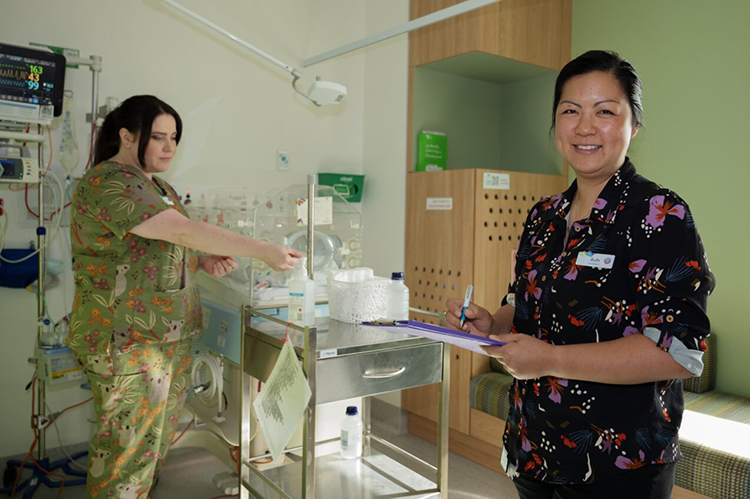Did you know that the person who first established a link between hand hygiene and health – a Hungarian doctor named Ignaz Semmelweis – was ignored by his peers, lost his job, suffered a mental breakdown and died from sepsis in a Viennese asylum in 1865? True story!
At a time when doctors believed that bad odours (miasma) transmitted disease, Semmelweis cracked the mystery as to why so many women in the maternity clinic at his hospital were dying from puerperal fever on a particular ward staffed by doctors and medical students. On this ward, women were dying at rate almost five times higher than the rate of women on the ward staffed by midwives.
Semmelweis studied the differences between the two wards and after first eliminating the position in which women gave birth and the potentially startling effects of a priest’s ringing bell (!), he deduced that the doctors began their day performing autopsies and were transmitting ‘cadaverous particles’ to the women they then examined in the maternity clinics. He ordered the doctors to start cleaning their hands with a chlorine solution and the rate of puerperal fever dropped dramatically.
But it was an unpopular hypothesis and after a time the doctors gave up handwashing. It took until the late 19th for germ theory to emerge and it remains the currently accepted scientific theory of many diseases to this day. And hand hygiene is now regarded as one of the most important elements of infection prevention.
Dr Ruth Lim, Neonatal Consultant and Medical Hand Hygiene Auditor
 Fortunately, Dr Ruth Lim faces no such resistance from colleagues to proper hand hygiene practices! A Neonatal Consultant in Newborn Services at Joan Kirner Women’s and Children’s, Ruth has recently taken on an additional role as a Medical Hand Hygiene Auditor.
Fortunately, Dr Ruth Lim faces no such resistance from colleagues to proper hand hygiene practices! A Neonatal Consultant in Newborn Services at Joan Kirner Women’s and Children’s, Ruth has recently taken on an additional role as a Medical Hand Hygiene Auditor.
Ruth and her colleagues in the Neonatal Intensive Care Unit (or NICU) look after babies who require intensive care for many reasons, including being born extremely prematurely or being very small. Clinical staff help babies breathe with ventilators, support their heart function, regulate their environment with incubators, provide nutrition for them to grow and do everything they can to minimise their risk of getting infections or sepsis while they are small and vulnerable.
This is where Ruth’s new Medical Hand Hygiene Auditor role comes in. She explains that clinical staff understand the importance of hand hygiene but that there are so many ways and moments during a busy shift when transmission of organisms can occur from healthcare worker to patients and vice versa.
“Good hand hygiene is one of the easiest ways to prevent infection in our most vulnerable patients, but it isn’t always done right. By performing good hand hygiene, we are protecting vulnerable patients from infection by preventing transmission of harmful organisms from other patients and from healthcare workers, and also protecting healthcare workers from contracting infections from their patients and bringing them home and out into the community.”
Ruth decided to pursue becoming a hand hygiene auditor when she realised that having a colleague and clinician who works alongside staff on the floor, who also doubles as an auditor, can be incredibly impactful in increasing awareness and vigilance around the importance of hand hygiene within a team.
“Gentle and constant reminders of the 5 Moments for Hand Hygiene, regular reporting of hand hygiene compliance rates to the clinical team, and targeted and tailored education to raise awareness are crucial to maintaining good hand hygiene rates.
“Being a clinician also gives me insight into the pitfalls and challenges faced by clinical staff in being compliant with hand hygiene, and helps our team target those challenges.”
One of the most worrying infection-related challenges globally is the rise of multi-resistant organisms (or superbugs), strains of bacteria that are resistant to most antibiotics. A 2022 study published in The Lancet found that superbugs were directly responsible for 1.27 million deaths worldwide in 2019.
“While we wait for new approaches to tackling superbugs good hand hygiene remains one of our best defences, staunching the spread of these organisms, thus preserving the effectiveness of antibiotics for treating bacterial infections.”
